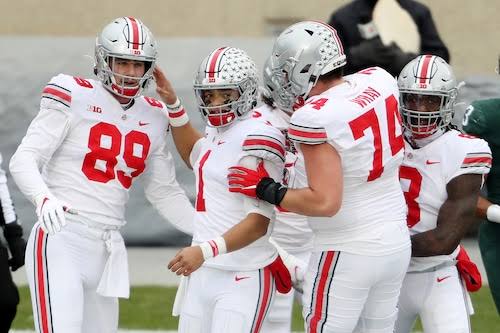
If The Game is Off, the Big Ten Needs to Apply Common Sense to Its Next Steps

In the event that The Game between Michigan and Ohio State is canceled or postponed, the Big Ten Conference must approach the situation with a level-headed and practical mindset. These two storied programs and their intense rivalry are central to college football, drawing millions of viewers and having significant implications for postseason positioning. If such a high-profile contest cannot take place as scheduled, the conference faces a critical decision-making moment that demands common sense over rigid adherence to protocol.
The Game is not just another matchup; it carries enormous weight in the culture of college sports. Beyond tradition, it heavily influences rankings, bowl selections, and conference championships. With that in mind, the Big Ten cannot afford to let inflexibility or bureaucratic red tape complicate what is already a challenging scenario. Whether the disruption stems from weather, health concerns, or logistical issues, the conference must prioritize fairness and transparency while maintaining competitive integrity.
One of the key considerations should be how to handle the potential impact on the standings. If canceling The Game becomes necessary, the Big Ten needs to devise a reasonable method to account for the lost contest. Should the teams share a tie in the rankings, or should alternative metrics be applied to determine postseason eligibility? The conference’s approach must be rooted in common sense—ensuring that neither team is unfairly penalized or rewarded due to circumstances beyond their control.
Moreover, communication with fans, athletes, coaches, and media outlets must be handled with clarity and empathy. The Game is an emotional and eagerly anticipated event for everyone involved, and uncertainty can breed frustration. By addressing concerns openly and providing updates promptly, the Big Ten can demonstrate leadership and maintain trust among its stakeholders.
Another important factor is the broader landscape of college football. The Big Ten operates within a national framework, where decisions regarding one game can ripple across other conferences and the College Football Playoff. The conference should collaborate with relevant bodies to align on contingency plans and minimize disruption to the postseason picture. A pragmatic, cooperative approach will be vital in navigating the complexities that arise if The Game is called off.
Ultimately, the Big Ten’s response should reflect the values of sportsmanship and respect for its programs. In the face of adversity, rigid rules must give way to flexible, reasonable solutions that honor the spirit of competition. If The Game is off, it is not just about rescheduling a football match—it is about preserving the integrity and excitement of college football in a way that benefits players, fans, and the sport as a whole.
In conclusion, the Big Ten is confronted with a delicate situation that calls for common sense and decisive action. The cancellation of The Game would be unprecedented and impactful, but it should not lead to chaos or confusion. Instead, the conference must lead by example, showing that practical thinking and clear communication can guide the way through uncertain times. By doing so, the Big Ten will uphold the tradition of one of college football’s greatest rivalries while safeguarding the future of the sport.







